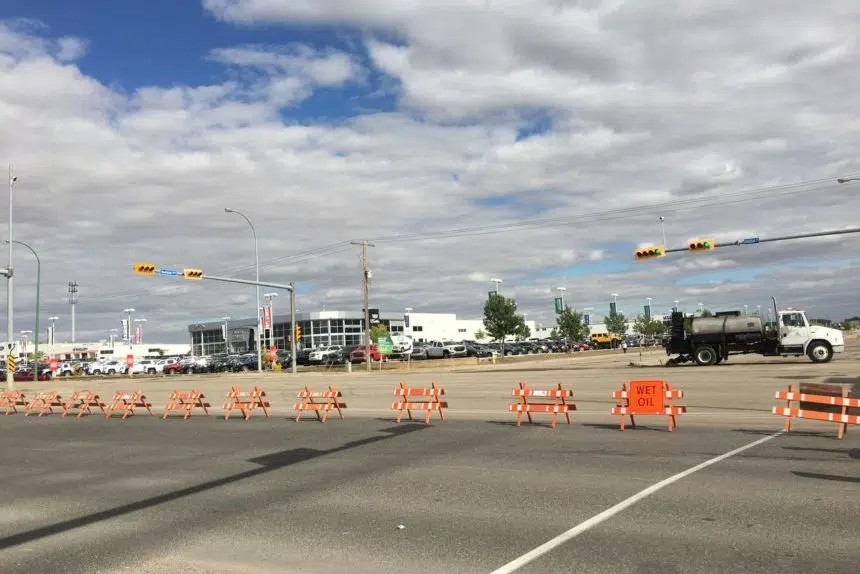As work crews drill into Regina’s roadways and further delay summertime traffic, the City of Regina is taking flak from the Saskatchewan Heavy Construction Association.
Association president Shantel Lipp says too much of the work is done by the city’s in-house crew, and not enough projects are going to the association’s members, local contractors whom she says have generations of experience.
“We’ve seen the city increase the amount of employees and the amount of capacity that they currently have, in terms of how much asphalt they’re producing at of their own, municipally owned asphalt plant,” she said.
Lipp estimated those increases have gone up by 60 per cent in that time period.
But data provided by the city shows different numbers.
Chris Warren, the city’s acting director of roadways and transportation, said that from 2009 to 2018, the city has produced 20.6 per cent more asphalt (68,000 tons in 2009 and 82,000 tons in 2018).
The number of permanent positions on the city’s road repaving team has gone up by 50 per cent in the same time period, from 12 to 18 positions.
Warren said each new project is different in terms of how the city plans for it. His unit is responsible mostly for repaving roads and patching potholes.
The work of actually rebuilding roads falls to local contractors, he said, and that’s when projects are planned with a mix of public (municipal) and private crews.
The recent work finished on Victoria Avenue, between Park Street and Arcola Avenue, is an example of such a project.
“The contractors came in, they did all the concrete work, and they were at the project for a number of weeks at the start of the season. Once the contractors completed the concrete work, our city crews went in and paved the road section,” he said.
Warren added that city crews do rebuild Regina’s paved alleys, but not its roadways.
Lipp said her and the association’s critique isn’t leveled at city crews’ workmanship quality or level of knowledge. They’re worried about less local people getting work, and thereby not contributing to Regina’s tax base and economy, she said.
“(This year’s construction budget) has got the local industry quite concerned about what the future holds for some of the contractors here within the city of Regina,” she said.
Warren said that whenever the city’s planning a road project, “we’re always looking to be financially prudent with the monies we receive from our taxpayers.”
Using a combination of public and private crews is a good way to do that, he said, adding that each project plan considers factors like “overall cost, quality of work, availability of crews and workload.”







